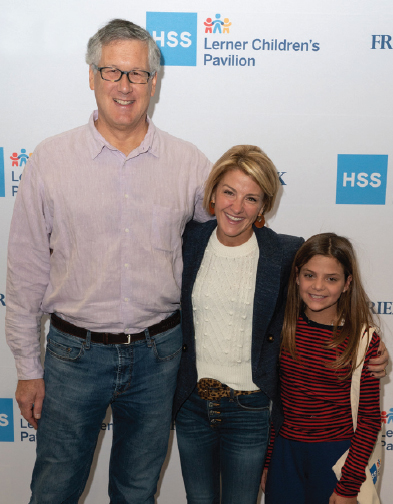Encouraging mobility and independence
The Penny Doerge Adaptive Academy (PDAA) organizes local, regional and national adaptive programs for kids and teens facing a range of disabilities. These events help patients realize new skills and interests, reinforce therapy goals and allow patients to socialize with other patients. Examples of past PDAA events include skiing, surfing and indoor rock climbing. These experiences encourage mobility and independence and often result in increased self-esteem, self-confidence and motivation to live fuller, more active lives.
About the Program
The Penny Doerge Adaptive Academy gives our patients an opportunity to develop skills and interests while promoting mobility and activity. The events reinforce therapy goals by engaging participants in new activities and requiring them to use their bodies in different ways. In addition to the physical benefits of participation, patients also experience increased self-confidence and independence following Academy trips. Often, once participants realize they are capable of and enjoy the sports and activities, they are encouraged to continue their involvement long after the initial event. The outings also serve as a unique opportunity for kids to socialize with other patients, and connections are often cultivated between families who stay in contact long after the event ends.
Eligibility
Patients who are eligible for these experiences are those who require adaptations to equipment to participate and often need support of a trained guide to safely engage. Patients with diagnoses of cerebral palsy, limb amputation and significant limb length discrepancy make up the majority of our referrals. Participants must be active HSS patients who are cleared to participate by their HSS physician.
Program Activities
- Skiing at Windham Mountain
- Basketball at Fastbreak Sports
- Tennis at the National Tennis Center
- Surfing at Skudin Surf at Long Beach and American Dream
- Water skiing with LOF Adaptive Skiers
- Sailing at The Waterfront Center
- Horseback riding at Endeavor Therapeutic Horsemanship
- Dancing with the Rockettes at Radio City
- Ballet with the New York City Ballet
- Basketball with the Brooklyn Nets
- Rock Climbing
- Soccer with New York Red Bulls
Read more about our activities
Meet the Team
Executive Directors
- Lisa Ipp, MD
- John Denneen, MSPT
Program Director
- Jessica Parise, CCLS
Medical Directors
- Roger F. Widmann, MD
- Karen Onel, MD
- David M. Scher, MD
Advisory Committee
- John Blanco, MD
- Emil Calcano
- JeMe Cioppa-Mosca, PT
- Deborah Corradi-Scalise, DPT
- Michael Coulston, Esq.
- Emily Dodwell, MD
- Shevaun Doyle, MD
- Peter Fabricant, MD
- Daniel Green, MD
- Jessica Podell
- Ernest Sink, MD
About Penny Doerge
HSS is honored to name the Penny Doerge Adaptive Academy in memory of Penny Doerge, a long-time patient of Dr. Roger Widmann’s, and the daughter of Pediatric Council member, Kate Doerge, who was diagnosed with neurofibromatosis (NF1) as an infant, but never let her diagnosis hold her back. Penny lived a life full of purpose, passion, and joy, and through her actions showed countless others how to live with grace.
Penny’s resilient, positive, and courageous spirit are all qualities that the PDAA works to promote in its athletes. The newly named Penny Doerge Adaptive Academy will have a widened focus on three key themes that are central to how Penny lived her life: motion, expression, and inclusion. Over the next five years, with philanthropic support, the PDAA aims to expand on these key themes by including art focused program offerings, hosting two additional events each year, and hiring an event coordinator to oversee program logistics and management.

Roger Widmann, MD pictured with Kate and Penny Doerge at the HSS Benefit for Pediatrics.
Your Impact
Philanthropy is vital to our ability to provide this unique and specialized programming to our pediatric patients with physical limitations. To support current activities and our vision for expansion, the PDAA will require an average of $500,000 annually for the next five years to support personnel and programming. We hope you will consider partnering with us by making a gift to support this important program.
For more information, please contact Emma Csenge, Associate Director of Development at 212.548.2787 or CsengeE@hss.edu.
News
Back to Pediatrics